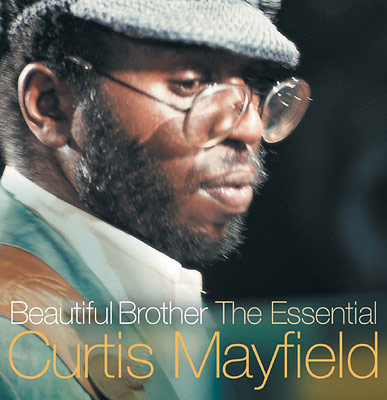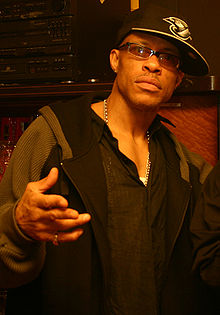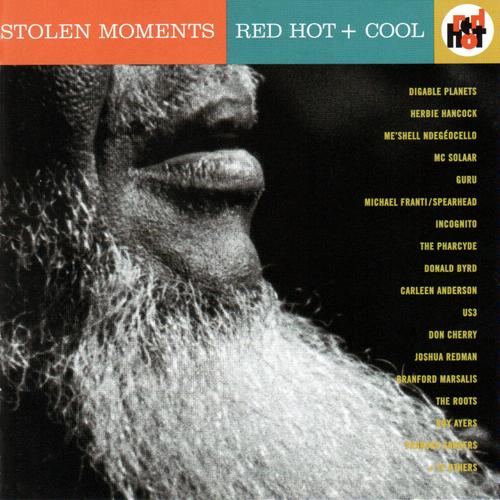| « Cisco Robles Live from NAMM2010 at gig-fx | Silent Sideman and the Lucky Break » |
A Road to Hip Hop
I just had this discussion with one of my students, a girl from Detroit. She told me I couldn’t know much about hip-hop because I am a white Canadian, and she’s right.
As GURU (Gifted Unlimited Rhymes Universal) from GangStar says in his 1993 album Jazzmatazz, “…Over the years hip-hop has evolved to represent what is happening now, the reality of street life. Rap is the oral expression of this, a tool, the literature. Hip-hop is the lifestyle, the philosophy, even the religion…” His Jazzamatazz albums, a mix of hip-hop and live jazz in the 90s, were considered to be the best hip-hop at the time.
Click to move on down that road
Stolen Moments Red Hot + Cool was a 1994 album that collected New York hip-hop and live jazz together. It, like Jazzmatazz, was a collaboration with artists such as Branford Marsalis. The dates and the influences, and the work that went into it all, makes me see just how influential and active GURU (or Keith Elam) has been. Stolen Moments: Red Hot + Cool was a collection of New York hip-hop artists and live musicians making music to raise awareness of the AIDS epidemic within the black community. Wiki identifies Stolen Moments as a 1920 film starring Rudolph Valentino, which ties in with the AIDS angle, a 1960 jazz standard by Oliver Nelson, which is the title track, and a 1990 John Hiatt album.
I’m not from Detroit, or New York, or Watts. And, yeah, it is politics, and if you are not hearing the words that go with the music then you are not getting the message. But the best I can do is try to understand. Things keep changing, but somewhere, somehow, there has to be a bridge.
Hip-hop can start from jazz and blues. But where do jazz and blues come from? Music is like God, I guess. There is no beginning or end. I can’t touch it. I can’t talk about it. It’s too big. So I can only show MY road, the road I took to get to my idea of hip-hop. And, if you respect that, maybe something of it belongs to everyone. And I can’t even pretend I know what that means.
Maybe hip-hop is a culture, too and it’s not just music. It’s like asking “What is the blues?” You get a whole bunch of answers, like “You can’t learn the blues, you either have to feel them or not.” They are “in your soul” and you can’t touch that in someone else. You can’t communicate. You have to be hip-hop to know hip-hop. And if that’s true, we are all doomed.
Duke Ellington said “The Blues ain’t nothing…,” and maybe, as Branford Marsalis says in Scenes from the City, “The sun’s going to shine in my back door some day all the way down to the bottom of my stomach and up again…” And maybe I find myself moving from blues to jazz to hip-hop looking for an identity because I somehow think that I am culturally pale, and maybe there is something universal in hip-hop which speaks to everybody. And maybe nothing can be pinned down or can be fully identified. Maybe you can’t say, “This is!” because suddenly it isn’t anymore. And maybe I am just some white guy stuck in a time warp and trying desperately to find an identity. I don’t know, but I can only do my best to understand.
GURU’s words echo the words of The Last Poets, what is rap. It is nearly half a century since The Last Poets. The Last Poets said it in the spoken intro to Get Moving. The Last Poets talked very clearly about The Revolution. A song like “This Is Madness” spits fire and brimstone. The meaning of E Pluribus Unum is clear and ingenious and impossible to deny. When the Revolution Comes is a clear call to action. And in the fifties and sixties, just a few years after the events which inspired the song Strange Fruit, an outspoken black man in the wrong place would easily be lynched.
And The Watts Prophets in LA is a call to arms. It was in the sixties. The Watts Prophets are building the army for the revolution, building the strength of a people with severe self reflection. And can I bring that stuff here now? Not the a capella rap, the hip-hop, because the undiluted voice is too powerful. I don’t have to say I am not promoting armed resistance. The situation is not the same today. But in some ways it is. And the words are there.
 I have to mention Curtis Mayfield, from If There’s a Hell Below to People Get Ready. The heart of hip-hop, of reform, especially with a black man in the White House, lies in Curtis. The Roots, on their album Phrenology, lay down the poetry of Amiri Baraka with “Something in the way of things.” Someone once told me once that hip-hop wasn’t politics. And all I can say to that is “Those with ears to hear…” which means “If you get it, you get it.” and if you want to learn hip-hop, decipher the names they give you in WAOK Roll Call. And a group called Digable Planets pointed me in those directions. I think real hip hop — the music and the culture and the politics and the religion and everything that hip hop is — is about making something better by building on the past. Who was it who said “If we forget the past we are doomed to repeat it”? And they weren’t talking about just music, and hip-hop — and rap — isn’t just talking about music either.
I have to mention Curtis Mayfield, from If There’s a Hell Below to People Get Ready. The heart of hip-hop, of reform, especially with a black man in the White House, lies in Curtis. The Roots, on their album Phrenology, lay down the poetry of Amiri Baraka with “Something in the way of things.” Someone once told me once that hip-hop wasn’t politics. And all I can say to that is “Those with ears to hear…” which means “If you get it, you get it.” and if you want to learn hip-hop, decipher the names they give you in WAOK Roll Call. And a group called Digable Planets pointed me in those directions. I think real hip hop — the music and the culture and the politics and the religion and everything that hip hop is — is about making something better by building on the past. Who was it who said “If we forget the past we are doomed to repeat it”? And they weren’t talking about just music, and hip-hop — and rap — isn’t just talking about music either.




